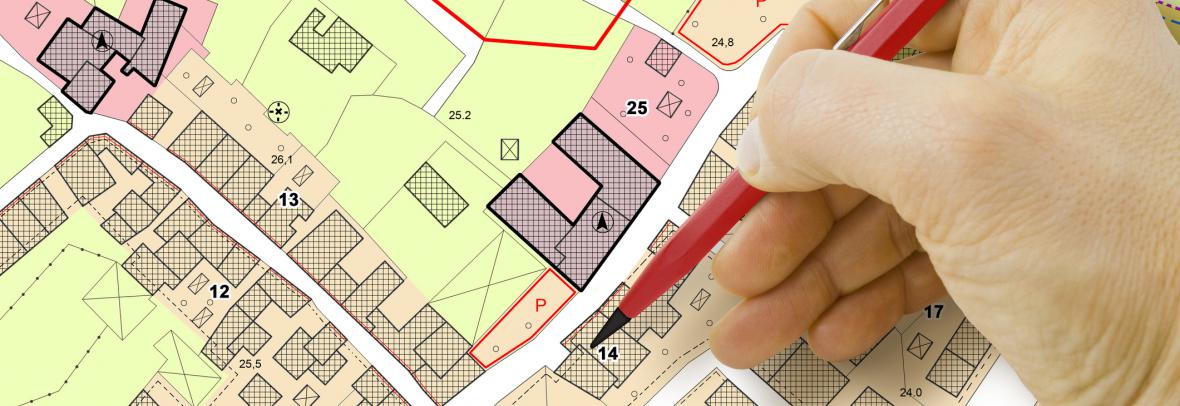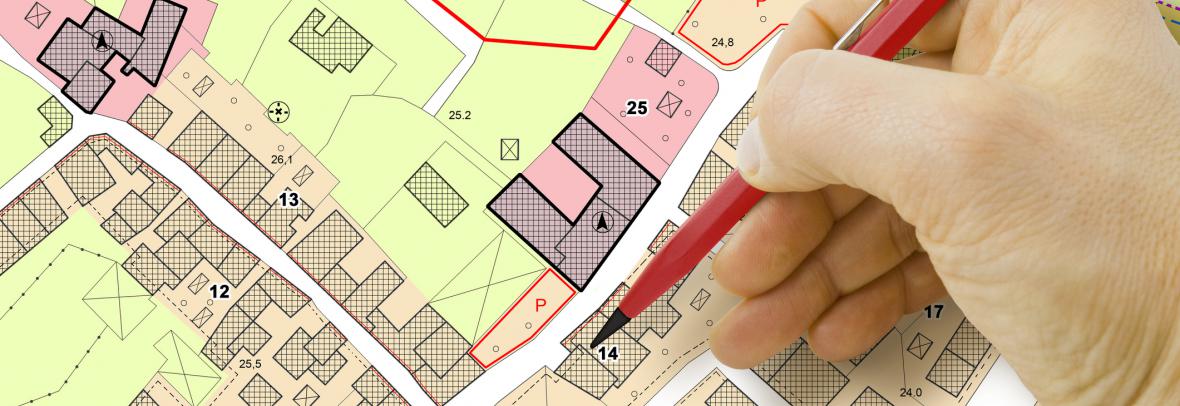
Is single-family zoning good or bad? It’s a hot issue, but affordable-housing advocates say it’s one of the problems, and Gainesville might nix it altogether.
GAINESVILLE, Fla. – A split vote during the Gainesville City Commission meeting on Thursday has put the city on pace to become the first in the state to eliminate single-family zoning. It was the first of two needed votes that came in around midnight after a crowd of nearly 100 people showed up to oppose the zoning change, while only about a dozen supported it.
The 4-3 vote calls for small-scale, multi-family housing throughout the city, affecting up to 63% of Gainesville’s residential properties. The proposal replaces the single-family exclusionary zoning with a new “neighborhood residential” category that would allow residential structures of up to four units per parcel depending on the size of the lot.
Buildings can’t be more than two stories tall.
The motion to approve the change included a recommendation by commissioner Reina Saco that staff come back with the pros and cons of sunsetting the laws in three to five years to give the city time to study how the zoning change works in the real world.
A vote to postpone the vote until after the Nov. 8 election failed.
“My concern has been that we don’t have data,” said city commissioner Desmon Duncan-Walker, who proposed the delay. “My bigger concern is that we don’t have the will of the people. And I think we need that.”
Saco, Mayor Lauren Poe, and commissioners Adrian Hayes-Santos and David Arreola voted in support of the first of two required votes on the zoning and plan change. Commissioners Cynthia Chestnut, Duncan-Walker and Harvey Ward voted in dissent.
“The best time to plant a tree is 20 years ago,” Poe said. “The second best time to plant a tree is today. The same is true for housing. The best time to build adequate housing, and abundant housing, was 20 years ago. The second best time is today.”
Poe said he wants people to be able to choose where they want to live and not be forced out of their neighborhoods. But he added that when there is a shortage of homes, wealthy people will gobble up those in more desirable neighborhoods.
“That is how displacement and gentrification works in every single city and town. It’s not unique to Gainesville,” he said.
The emotionally charged meeting at the packed City Hall lasted more than six and a half hours, with a crowd flowing into a conference room and out into the parking lot, where some elderly people complained about standing for hours in 90-degree heat.
Commissioners who support the zoning and plan change have said that allowing the slight increase in density in single-family neighborhoods could create more housing units and help with the affordable housing problem over time. They attribute the origins of the city’s zoning laws to racist policies set during the desegregation era.
But the vast majority of Black people who have spoken out are opposed to eliminating exclusionary zoning. Commissioner Chestnut said the situation was odd and had emboldened Gainesville’s Black community like never before.
“I have never in my life been in a situation where you have white people calling an issue ‘racist,’ and Black people saying, ‘No, it’s not racist,’” said Chestnut, adding that the issue should not be about race.
But some historically Black neighborhoods, like Porters and Fifth Avenue, won’t be directly affected by the zoning change, as those areas already allow multi-family units. If anything, some argue, the zoning change would alleviate pressure in neighborhoods by expanding similar multi-family homes around town, mostly in the northwest part of the city.
Pushback from community leaders
Local state legislators are trying to get the plan change held up at the state level.
State Rep. Chuck Clemons, R-Newberry, and Sen. Keith Perry, R-Gainesville, recently sent a letter to the Florida Department of Economic Opportunity, asking it to intervene and hold up the process until the Legislature meets next spring to possibly address the issue. That agency is now the one that must sign off on the comprehensive plan.
The commission made the decision over not only residents’ objections, but all of its advisory boards.
Earlier this week, the Alachua County Commission voted to recommend that the city not approve the change. The city’s Affordable Housing Advisory Committee on July 12 unanimously urged the commission not to move ahead with the zoning change. And the city’s Plan Board was not opposed to the new multi-family zoning category but recommended it not be implemented citywide.
Community feedback
Several speakers urged the commission to put the proposal on a ballot for voters to decide. Petitions were presented with more than a thousand signatures of residents opposed to the change.
Harry Shaw, a Suburban Heights resident, said the rezoning is “unproven radicalness,” adding that it would result in a “costly ill-conceived boondoggle for Gainesville” but a windfall for developers.
Some residents also said they fear allowing multi-family units in single-family neighborhoods would lower property values and encourage student rentals that are not affordable. They said the multi-family units would result in more noise and parking issues.
Several UF students were among those in the minority who urged the commission to get rid of the exclusionary single-family zoning, saying it is keeping home prices high.
“This is just allowing people the flexibility to build housing that meets their needs,” Joshua Ney said.
It’s not over
The vote does not mean the changes are law yet. It was the first of two required votes. In between each, the plan must also be approved by the state Department of Economic Opportunity.
Ward said he believes the plan will get held up for a while there, calling it “uncharted territory.”
Chestnut agreed on Friday, saying it could be delayed until new elected leaders take office in January.
If that happens, the plan and zoning change would not likely happen, she said, noting that one speaker polled commissioner candidates who overwhelmingly said they would attempt to reverse the change.
The state agency has 30 days to respond to the city’s proposed land plan change.
“They could ask for more time,” Chestnut said. “I think they could take a number of approaches … They could say, ‘You need to have more public input,’ which I fully expect them to say. And I think another very, very powerful piece here is the Black community. With the Black community unanimously saying ‘no,’ I don’t think the state is going to ignore that.”
GNVoices President Casey Fitzgerald, who heads the organization fighting the plan and zoning change, said they will first contact the state agency and point out that the city has not done enough studies to justify the plan change, which is required by law. He said this could hold the case up until the next commission is seated after January, which would likely mean the zoning and plan proposal would die.
If the state agency approves the plan, then GNVoices will file an administrative appeal to the state’s decision to allow the plan change, he said.
Copyright © 2022, Gainesville Guardian, all rights reserved.
Go to Source
Author: marlam



